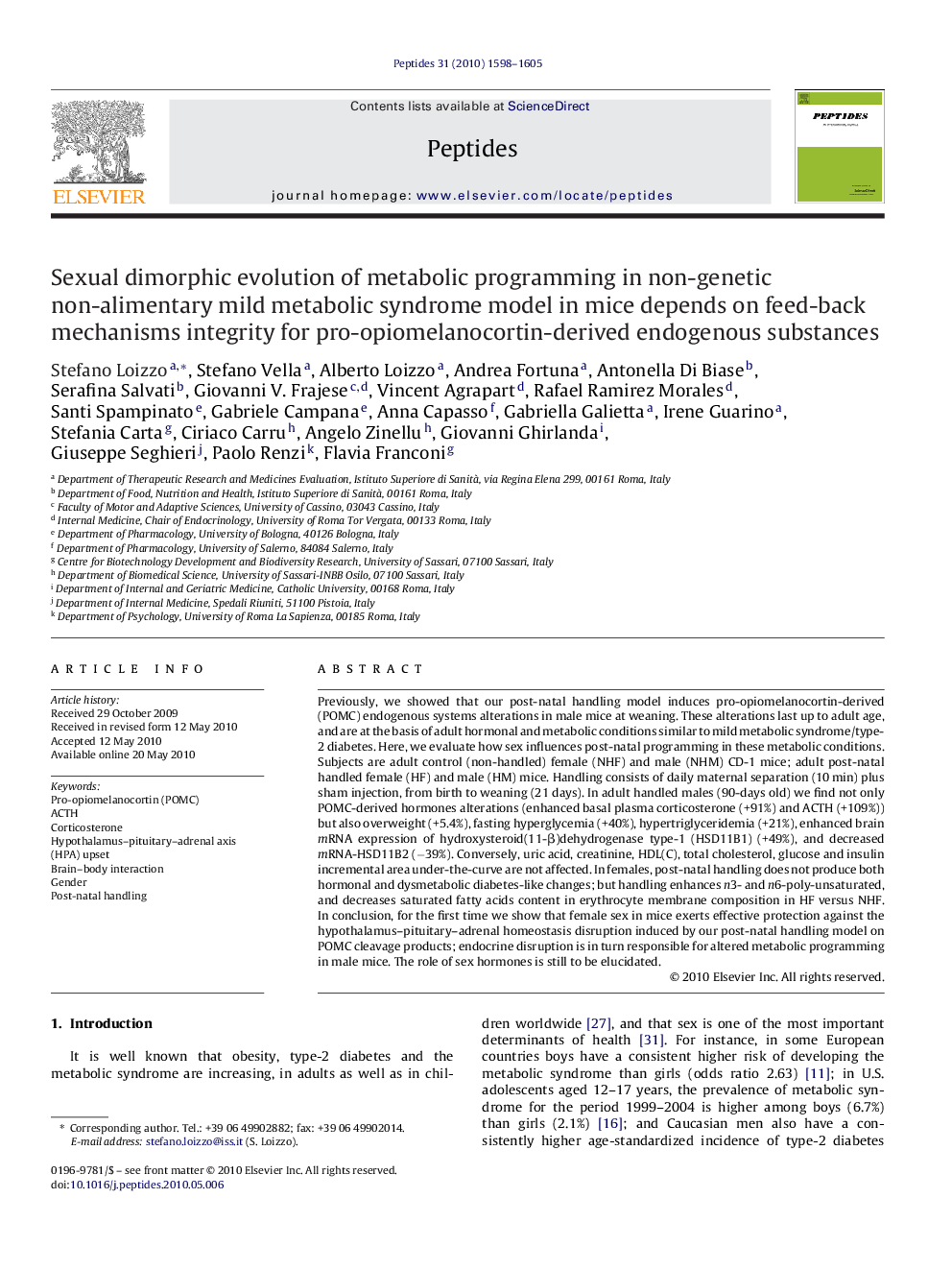| Article ID | Journal | Published Year | Pages | File Type |
|---|---|---|---|---|
| 2006961 | Peptides | 2010 | 8 Pages |
Previously, we showed that our post-natal handling model induces pro-opiomelanocortin-derived (POMC) endogenous systems alterations in male mice at weaning. These alterations last up to adult age, and are at the basis of adult hormonal and metabolic conditions similar to mild metabolic syndrome/type-2 diabetes. Here, we evaluate how sex influences post-natal programming in these metabolic conditions. Subjects are adult control (non-handled) female (NHF) and male (NHM) CD-1 mice; adult post-natal handled female (HF) and male (HM) mice. Handling consists of daily maternal separation (10 min) plus sham injection, from birth to weaning (21 days). In adult handled males (90-days old) we find not only POMC-derived hormones alterations (enhanced basal plasma corticosterone (+91%) and ACTH (+109%)) but also overweight (+5.4%), fasting hyperglycemia (+40%), hypertriglyceridemia (+21%), enhanced brain mRNA expression of hydroxysteroid(11-β)dehydrogenase type-1 (HSD11B1) (+49%), and decreased mRNA-HSD11B2 (−39%). Conversely, uric acid, creatinine, HDL(C), total cholesterol, glucose and insulin incremental area under-the-curve are not affected. In females, post-natal handling does not produce both hormonal and dysmetabolic diabetes-like changes; but handling enhances n3- and n6-poly-unsaturated, and decreases saturated fatty acids content in erythrocyte membrane composition in HF versus NHF. In conclusion, for the first time we show that female sex in mice exerts effective protection against the hypothalamus–pituitary–adrenal homeostasis disruption induced by our post-natal handling model on POMC cleavage products; endocrine disruption is in turn responsible for altered metabolic programming in male mice. The role of sex hormones is still to be elucidated.
